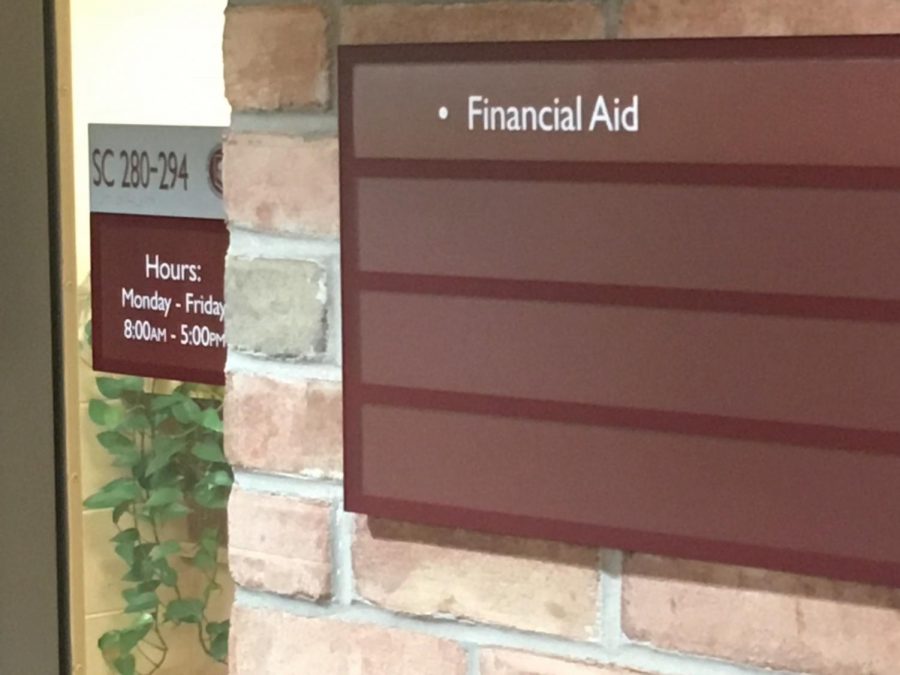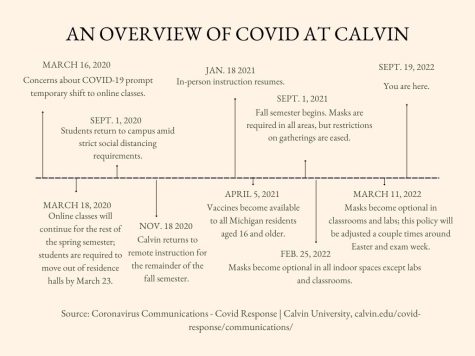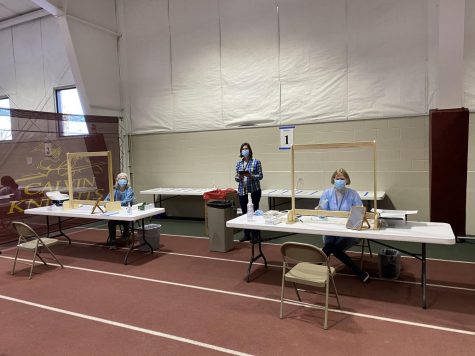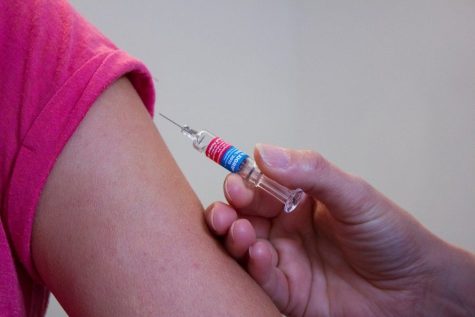COVID-19, foreign oil war spark stock decline, hit university portfolio
The university has over $200 million invested.
The pandemic of COVID-19, along with the ongoing Russian and Saudi Arabian oil wars, has driven down the value of the stock market, according to Mike Wilson, Chief Investment Officer of Morgan Stanley, over a conference call.
According to Jim English, vice president for finance, Calvin University, although not actively investing in individual stocks, does have “over $200 million invested in stocks, bonds, private equity, commercial paper, treasury bonds, and other investment vehicles.” Although the S&P 500 U.S. Equity Index declined over 19% in the last month, Calvin’s portfolio only declined by 8.7% due to widespread diversification. Funds invested in the markets are separate from operating funds, which are held in low-risk investments and banks, and therefore not subject to market fluctuation.
English sent out an email on Thursday, March 20, that said, “Like many organizations, Calvin University stands poised to suffer significant financial losses. We have incurred a number of unexpected expenses, experienced a loss of revenue, and watched our endowment portfolios plummet.”
According to the email, Calvin lost about half a million dollars from cancelled events and conferences within just the first week. English added that he expects more costs to grow with sick leave and increased cleaning while revenue drops.
Several Michigan-based companies are seeing falling stock levels in accordance with the marketwide drop. Kellogg’s, international food manufacturers based in Battle Creek, saw a peak of 70.88 USD in mid-January, and is now sitting at 61.98 USD. General Motors, with worldwide headquarters in Detroit, has fallen roughly 12 points since mid-February. Ford, headquartered in Dearborn, has fallen 2.85 points since Feb. 13. At the time of this writing, Kellogg’s is the only one to bounce back, gaining nearly 10 USD since the 58.19 low last Thursday.
In recent months, Russian oil companies have been trying to take control of Asian oil markets, taking advantage of the COVID-19 slowdown in gas purchases. According to David Brennan of Newsweek, “Part of the decision may also be a response to fresh U.S. sanctions on Venezuela, where Russia’s Rosneft oil corporation is helping finance state oil producer PDVSA and prop up President Nicolas Maduro. The Saudis retaliated by flooding the market with oil, collapsing prices.”
Since people wish to avoid contracting, spreading or exposing themselves to COVID-19, they are tending to avoid going out unless absolutely necessary. This leads to the stock value of companies being decreased. This, combined with the oil wars, could lead to a recession. Typically, heightened levels of unemployment, low spending at businesses, and lower income are indicators of a recession. According to Evie Liu at Barron’s, “Traditionally, a recession is declared when a country’s gross domestic product, or GDP, is in negative growth for two consecutive quarters.”
This story has been updated with information for Jim English.












